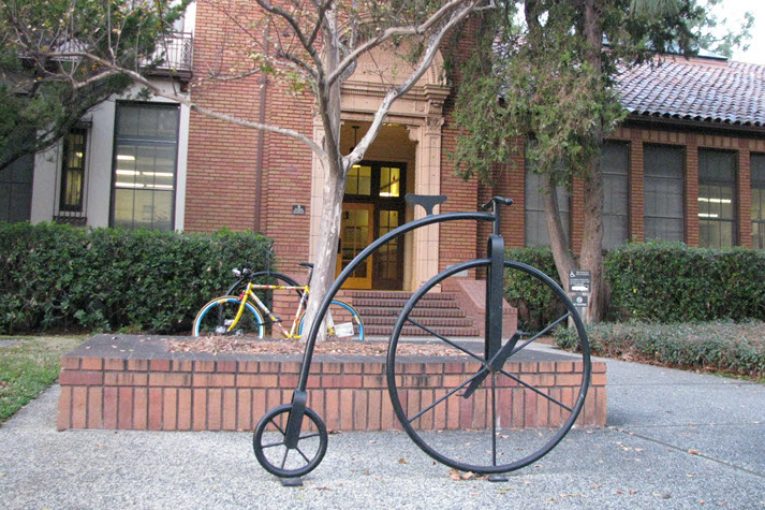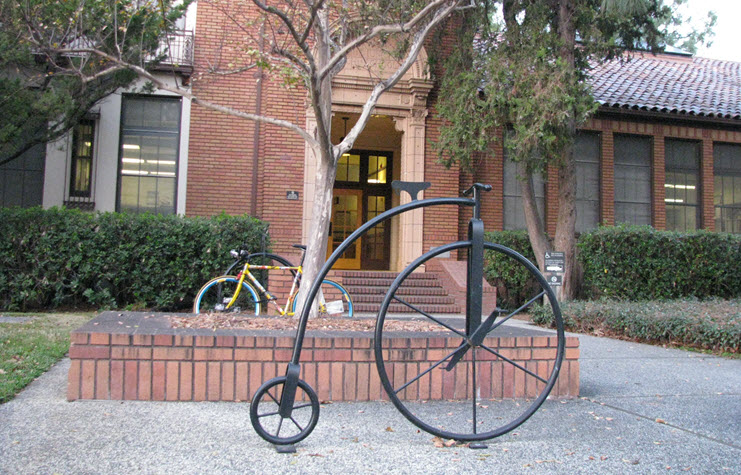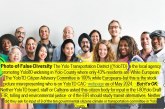

By Lauren Smith
At Tuesday’s City Council meeting, City Manager Mike Webb shared legislative accomplishments from the 2020 year and proposed the 2021 platform.
Introduced within the past couple of years, the legislative platform is a way to “focus the efforts of the city, council and staff by putting down in writing what it is” they want to pursue in a legislative calendar year.
Some of the successes from 2020 include the Regional Housing Needs Allocation (RHNA) process, as well as “funding and streamlining affordable housing” in town.
For the 2021 platform, Vice Mayor Lucas Frerichs wanted to focus on four issues: housing, transportation, environmental and fiscal.
Under the housing section, Frerichs stated that two of the “top priorities” include “monitor and consider support for Housing Streamlining [and] monitor affordable housing bills.”
Under transportation, he briefly mentioned supporting the I-80 corridor improvement project.
Under the environmental section, Frerichs stated that the city will be seeking funding in order to implement Senate Bill 1383, which established methane emissions reduction targets, and waste management.
In addition, he suggested more advocacy for the Green Means Go program which will help reduce greenhouse gas emissions.
As for the fiscal items, council member Dan Carson expressed hope for funding from Congress to invest in infrastructure projects that were “put on hold because we got hit with the loss of $20 million in revenues due to the COVID recession.”
Carson also appeared hopeful that Congress will pass a $1.9 trillion COVID assistance bill. While he acknowledged that perhaps the city was “frustrated in the past” this bill would provide “$350 million direct assistance to cities, and that cities our size would get a direct part of the check and not have to go begging to the state to get the help funneled to us.”
The council unanimously voted to establish and authorize a council subcommittee “to engage with legislative and administrative policymakers.”
Council next moved on to discuss council goals for the next two years.
Webb stated that he is “not anticipating that we will get into the meat of the goals tonight” but rather this discussion would “provide the prelude to that.”
After reviewing the goals from 2018-2020, which included “fund, maintain and improve infrastructure, drive a diverse and resilient economy, pursue environmental sustainability, [and] ensure a safe, healthy, equitable community,” Webb asked the council for next steps such as a timeframe for reporting updates and a structure for goals, and to “provide input to staff on what tools would be beneficial moving forward.”
Mayor Gloria Partida expressed the importance of getting input from commissioners, however she stated, “I don’t know with our timeline if we could go to all of the commissions and solicit their input. I would be happy to have commissions email us their recommendations and give us input in that way.”
Yet, Partida added that she “would rather see that in reverse. So we set our goals…then we get input from the commissions on those items [and] what would be the best way to implement those…this is not a promise that we will take those recommendations and implement those recommendations because I think that sometimes sets the commissions up for frustration when we come forward and say ‘give us your thoughts’ and then say ‘no we aren’t going to take any of those thoughts.’”
The public commenters expressed overwhelming support in urging the council to address and support the nine recommendations made by the temporary joint subcommittee on reimagining public safety.
The first public commenter, a representative from Yolo People Power (YPP), Mark Simon, urged the council to “formalize their support for the nine joint subcommittee recommendations by adding a new PRIORITY objective to Goal 5 ‘Ensure a safe, healthy, equitable community’” by identifying “concrete, measurable ‘action items’ under this new objective and a timeline for their completion.”
An additional representative from YPP, Francesca Wright, emphasized Simon’s points and asked the council to add a new objective, “implement the nine recommendations of the joint subcommittee on public safety.”
Dillan Horton also expressed support for addressing public safety stating, “I hope that as the city council develops its goals for the next two year period that it includes the nine recommendations brought forward by the joint subcommittee to develop public safety reform and reimagining our local public safety systems.”
Yet another public commenter, Larry Guenther, urged council “to add the objective ‘implement the nine reccommendations of the joint subcommittee on public safety’…if we are to know true peace, everyone in our community must know justice.”
Council unanimously agreed that following the adoption of goals, they would have the first check in six months later and additional ones every three months subsequent.

Lauren Smith is a recent graduate from UC Davis who double majored in Political Science and Psychology. She is from San Diego, California.





The link isn’t “helping”, regarding any particular point. The RHNA requirements are foisted upon a city by SACOG, and are not in-and-of-themselves a “success”.
And beyond that, how would this ever be considered a “city success”? Were they able to finally include the megadorms (post-approval), as meeting some of those requirements?
By the way, Marin county is fighting similar requirements. I wonder if the Yolo supervisors would ever consider doing the same.
Marin supervisors push back against state housing mandates (marinij.com)
This reaction, by the way – was entirely predictable. And is likely not the last we’ve heard of it. (Especially in a state that’s no longer growing, except what’s forced upon it by representatives.)
Sometime, you ought to take a look at how YIMBY organizations are funded, and who they support. And also examine the reaction against that type of effort, often from lower-income people who are afraid of being displaced.
But in places like Davis and (perhaps Yolo county itself), they seem to be on the “wrong side” in the first place. Lucas himself is on the SACOG board, isn’t he?
I’m happy to see that municipal broadband made the wish list, though the lack of specifics makes me wonder if there’s any there there.